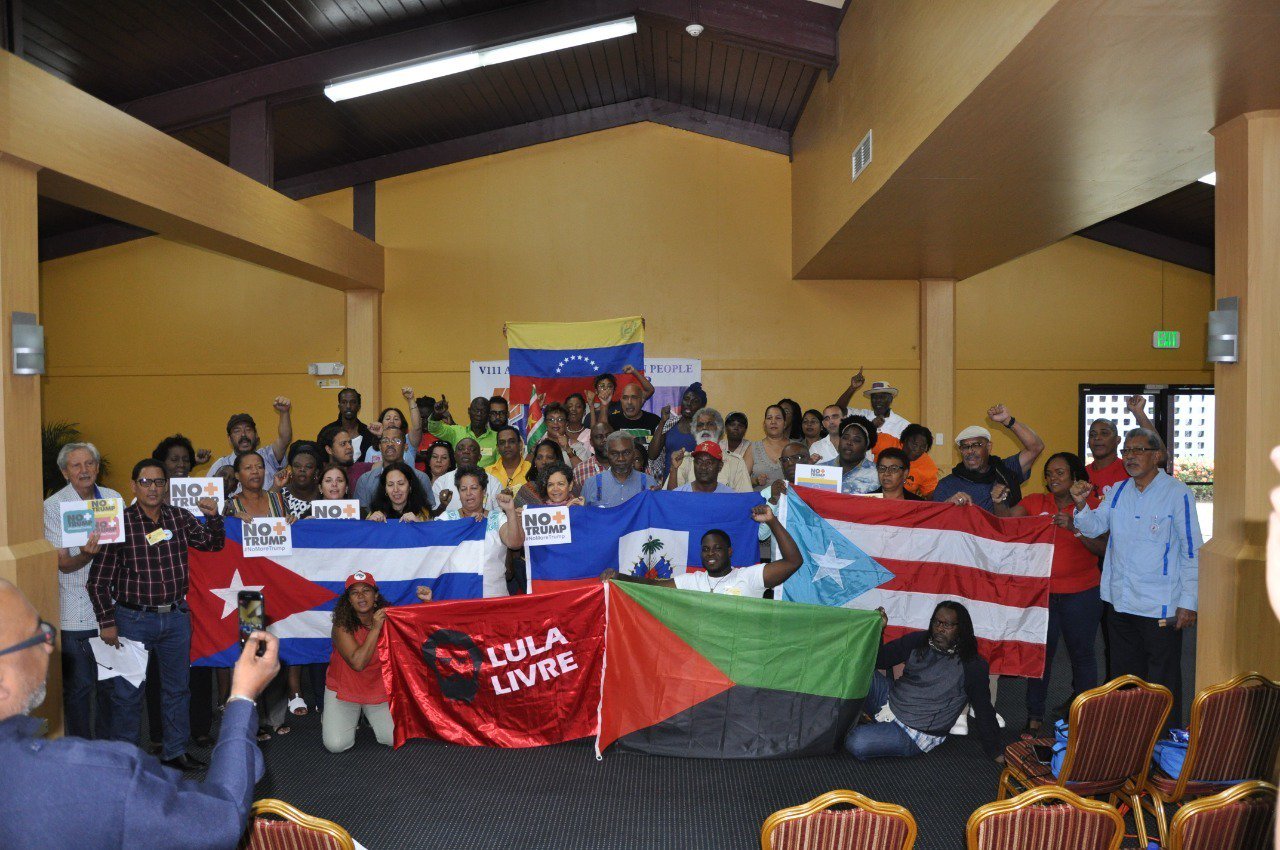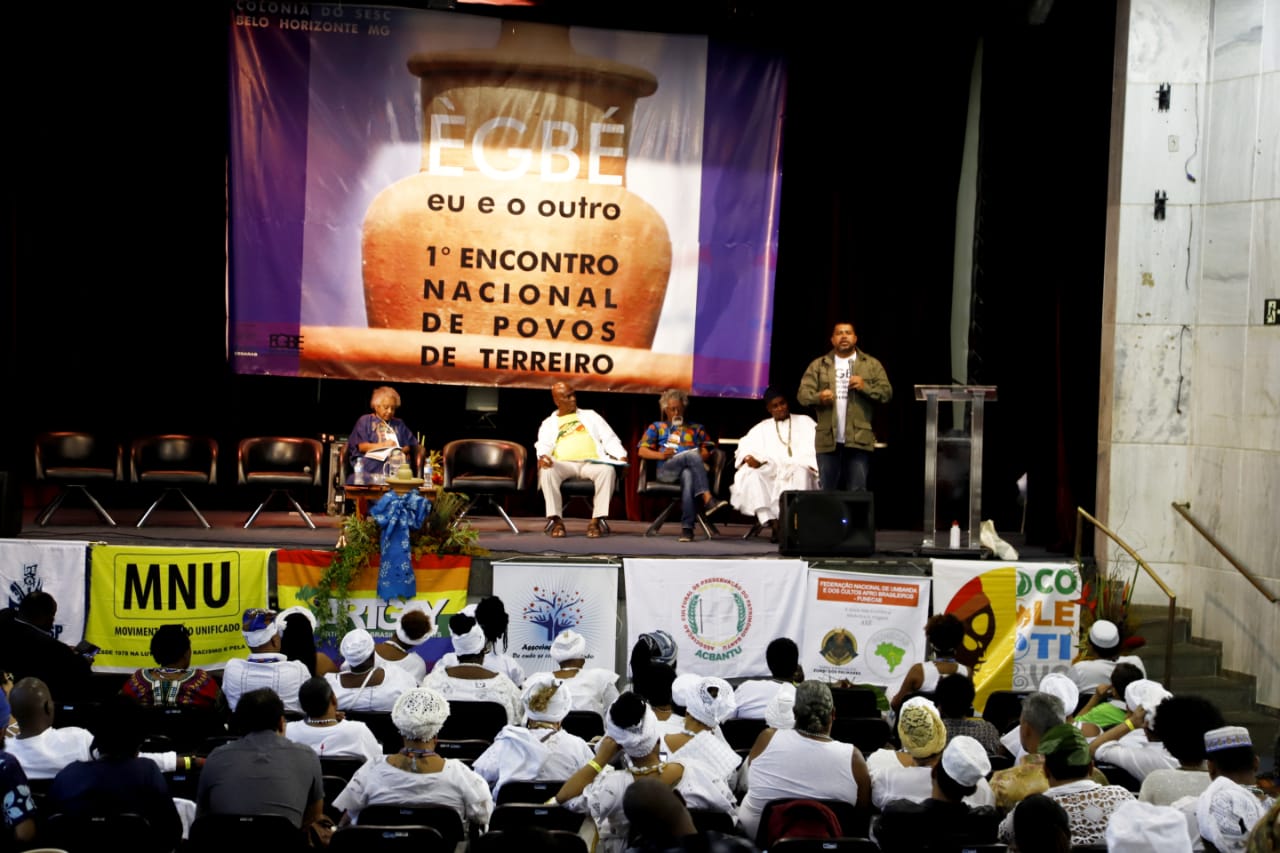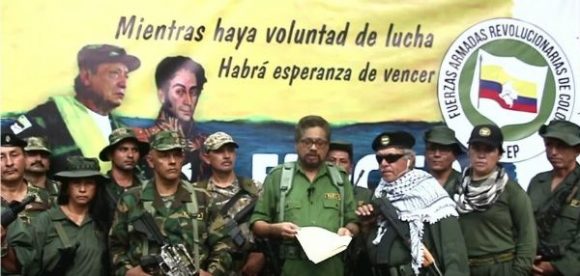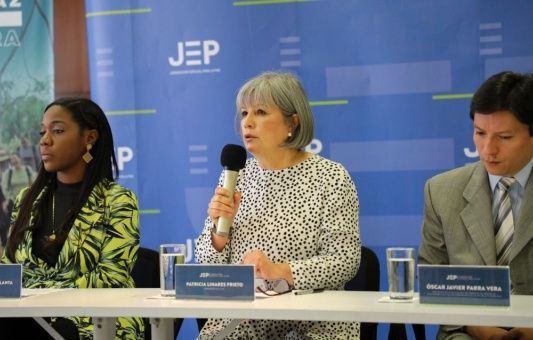"Religion and politics": spirituality is fighting ground for the Afro-descendant population
Sheila Walker and Chucho García speak on the book
Conhecimento desde dentro – os afro-sul-americanos falam dos seus povos
Agatha Azevedo
Brasil de Fato | Belo Horizonte (Minas Gerais), June 18 2019 08:15
North-American Sheila Walker and Venezuelan Jesus Chucho García debate black resistance / Photo: Geledés/Rafael Stedile
During the Ègbé – The I and the other 1st National Meeting of Terreiro Peoples, held last Saturday (15) and Sunday (16), in Belo Horizonte, Minas Gerais, anthropologist and director of the NGO Afrodiáspora Sheila Walker debated the importance of political organization for Terreiro Peoples in Brazil and throughout the Americas and uniting to resist the advance of authoritarianism and conservatism.
In an interview with Brasil de Fato, Walker and Venezuelan Jesus Chucho García, who works for the rights of Afro-descendants in his country, discuss the role of theoretical elaboration in recovering the history of the black diaspora in the Americas, and the importance of understanding religiosity as a disputed fighting ground in the current international conjuncture.
Brasil de Fato: Sheila, in your lectures, it's possible to identify the presence of an Afro-diasporic political and religious construction in a context of oppression in the United States. How did this construction begin?
Sheila Walker: As an African-American in the United States, it's hard not to be in the struggle for equality in one way or another. I have a Ph.D. in Anthropology, because I thought Anthropology was a wonderful discipline to learn about the other, to appreciate the other. When I was 4 years old, I would go to my aunt's house, my grandmother's sister, who lived in the Chinese neighborhood, and there they spoke differently, their faces looked different, they were different and I was fascinated with the possibility of getting to know the other. I wanted to travel, but at 4 years old, I couldn't. So when I turned 19 I went to Cameroon and lived with a wonderful Pan-Africanist family who would ask me difficult questions, because I didn't know the diaspora and I didn't know a lot of things — because I lived in the U.S. — so I began to notice my ignorance of the black world.
I was studying at an elite white university, and I was the only black student in my class. So I now understand that this visit I made to Cameroon in Central Africa was an antidote to my alienating education. I had grown up in an integrated community, always went to school with everyone, but in social life, blacks were on one side and whites on the other, by custom, not by law. I'm from Northern U.S., and my family was working class, but wasn't in the struggle. My generation started this.
Was this the moment when religiosity entered your life as well? How is it linked to politics?
Sheila: I began attending a Baptist Church, in Northern U.S., and I noticed that when music started heating up – and it needs to get hot in our churches, or else no one participates – there were some very well dressed ladies who started to jump and I would think: “What is this?”. I didn't understand it, and they would tell me “It's the holy ghost”. I was 8 years old, and nobody ever explained to me how the ghost works or where it comes from, and when I went to my first Candomblé cerimony in Bahia I recognized the gestures, the moving of the shoulders, for example, like when the Orixá arrives. So I said: “Ah, now I understand where the ghost comes from”, and it was within African-American Protestantism, which is not like Protestantism in Brazil, that I understood where our Africanness comes into play in the United States.
These churches aren't just spirituality houses, one of their functions in our lives is political organization, economic organization. It's not a coincidence that many of our black leaders are church pastors, like Reverend Martin Luther King. So it's not just the holy ghost, it's also politics. Religion is also politics. In Southern U.S. everything was segregated by law, black people had to stay in the back of the bus, if there was a seat, so when Rosa Parks didn't give up her seat to a white man and went to jail, what happened afterwards? A church meeting. There was a whole resistance system which began in the Church. Church is part of my cultural life, but I never understood these stories of the Christian church, I find Candomblé more interesting, more dynamic and prettier, if I had to define my spirituality, I would say it's more Candomblé than Protestantism, but it's important for me to know Church culture because it is the basis for our African-American culture in general.
I was thinking, does Candomblé, for example, have this kind of function in people's lives or is it just spirituality? Well, here we are. It's for spirituality, but it's not just that.
How did your intellectual and political thought develop in this context of understanding Africanness in the United States?
Sheila: When I was in grad school in the University of Chicago, it was during the period when they started letting more than one black student in the universities. We were a critical mass. But we realized as time went on that, of course being there was a privilege, but where were we? We weren't in the books, they didn't tell our experience, and I think this was the beginning of my struggle, and I noticed that my role was an intellectual role so that our existence was part of the curriculum. So we began to ask for more classes about us, and we went from asking to making non-negotiable demands. I noticed that my role in the struggle is to see the reality of the African diaspora in America and the Atlantic, to see our contributions, and debunk the lies we learned in the Pan-American education system.
Is it from this need to rethink Afro-diasporic scientific production that your book Conhecimento desde dentro – os afro-sul-americanos falam dos seus povos e suas histórias is born?
Sheila: Yes. In our book the peoples talk about themselves, we consider that we are having an act of intellectual
quilombismo,
cimarronaje. One element of my fighting attitude is the fact that my teachers have shown me that the discipline of Anthropology is not made to know the other but to dominate the other, it is an imperialist creation, but I thought I could use the tools to study what I wanted to study, and understand more the diaspora and our ties to Africa. They made an effort to make me believe we had no culture, and it was written by great American sociologists at the same time as cultural diplomacy was happening, and what was the content? Our “non-existent” culture. From 1956 on, the U.S. was sending jazz musicians around the world to show that this is U.S. culture, which represents our country in the world, but jazz is our black culture that they said didn't exist.
What we did was invite people from various South American countries, representatives from 9 Hispanophone countries, and that have knowledge of reality. Many didn't attend college, but still have their experiences, their Africanness. Our mission was to give the possibility to our cousins in the South to seize the content of their culture and what are the Afro-diasporic communitity's contributions in their countries. Even tango, from Argentina, where they say there is no black people, is a Bantu word with a hidden history. One element of this book is the comparative perspective, understanding and recognizing oneself from knowing the other's culture, and we had to create a lot of words for these theories that did not exist and were not spoken. The only explanation for some of our behaviors is our African origin.
Chucho, what do you, as an author of one chapter of this book, consider culture of resistance in this Afro-South-American territory?
Jesus Chucho García: Well, in my reflecting I bring five types of
cimarronaje: frontal, legal, ethical, cultural and spiritual. Do you know what is
cimarrón and
cimarrona? When we would escape the slave system, they would call us
cimarrón and
cimarrona because we would break the chains. It's how, here in Brazil, Zumbi dos Palmares was a
cimarrón, a
quilombola. The first
cimarronaje is the frontal assault against the master, against slavery, against oppression, and we would fight in the plantation and escape looking for a free space, the
quilombo in Brazil, the
palenque in Colombia and Cuba, the
cumbe in Venezuela and so on.
The second was legal
cimarronaje. Many Africans brought as prisoners – I don't say enslaved, they were prisoners doing forced labor in prisons called sugarcane, coffee and cocoa plantations – had a legal space where they could buy their freedom, or for example, when there was an escape in a slave country, if they got to an enemy country, they were considered freed, and when they accepted the Roman Catholic Church. Then, we had ethical
cimarronaje, which is the claiming of African values by the quilombos, but also the struggles of the peoples, like in the struggle for the liberation of Haiti, who later also ethically helped the struggle for independence of Venezuela, Panama, Colombia, Peru, Bolivia and Ecuador with international armies, in an international display of solidarity among the peoples.
Another type is cultural
cimarronaje, the culture of resistance, which had three moments: the preservation of the original culture expressed through music, dance and cuisine; the creation stage where, facing a new situation, they had to take elements of the indigenous culture, certain aspects of the dominant culture, and there was an interesting creation process – Brazil is an example of African and indigenous cultures were combined –; and then were was innovation as a culture of resistance. We began to innovate, we began to have new elements, if samba here is a starting point of the culture of Congolese origin, it started taking elements of the European culture until it created bossa nova, and so it was with other rhythms.
Lastly, there is spiritual
cimarronaje, which was how we conserved our spirituality, and it's what explains how even after four hundred, five hundred years, Yoruba culture is still alive, Congolese culture is still alive, Vodu culture is still alive. That's an example of spirituality as part of resistance. They might have taken a piece of my body, scourged me, ripped out a hand, but they never touched my soul, my faith. Spirituality is the faith in the struggle to claim our humanity.
In your opinion, what is the importance of this 1st National Meeting of Terreiro Peoples for advancing the struggle of Afro-descendant peoples in the current scenario?
Sheila: For me, the fact there are people from various places is a force to be reckoned with. It's a start, this level of organization coming from the people of axé is very important, especially in this retrograde moment we are living here (in Brazil) and in the United States. But I want to talk more about the racist and sexist man occupying the White House, because he's so bad he's provoking wonderful reactions: now we have more young women in Congress, among our representatives there's a Palestinian woman, a Puerto Rican, a Somali migrant refugee, and so on... we are resisting, he provoked strong reactions, and women are protagonists in this fight.
In Brazil, self-declared Afro-descendants are 54% of the population, in the United States we are something like 13% of the population, but we are organized, and if this 54% manage to achieve unity, it would be a huge advance for this country, and that's what begins here at this meeting. I hope the terreiros and casas have a more political behavior, I hope they don't see themselves just as a religion, but as the basis for economic and political behaviors, for unity against the oppressors, with the responsibility of having a political behavior capable of uniting. When Africans arrived, oppression was much bigger than now and they still managed to organize to preserve the orixás. The fact that we are here now is proof that we are organizing to change the system in our favor.
Chucho: I think that in the first decade of the 21st Century, we proved the possibility of change, the progressive governments of Lula, Chávez, Mujica, well, during this moment there was a lot of inclusion. They opened a possibility that with more humane and progressive governments, we could have more participation, even with the mistakes they made, of course. But the racist, chauvinist and sexist right took advantage of these mistakes to involve the people. Many poor Brazilians voted for Bolsonaro, as many poor people in Southern U.S. voted for Trump, but that has to do with the lack of knowledge, rights and information. But the people resisting are the Afro-descendants, we have to have more political participation so we can have more decision-making power, the political recovering of the Afro-descendant movement will have a global influence and that is our hope.
Editing: Pedro Ribeiro Nogueira
"Religion and politics": spirituality is fighting ground for the Afro-descendant population




















